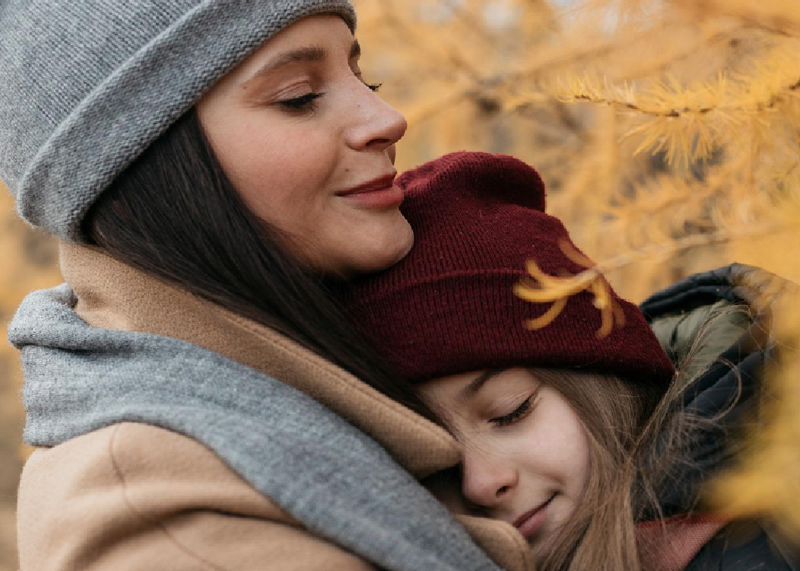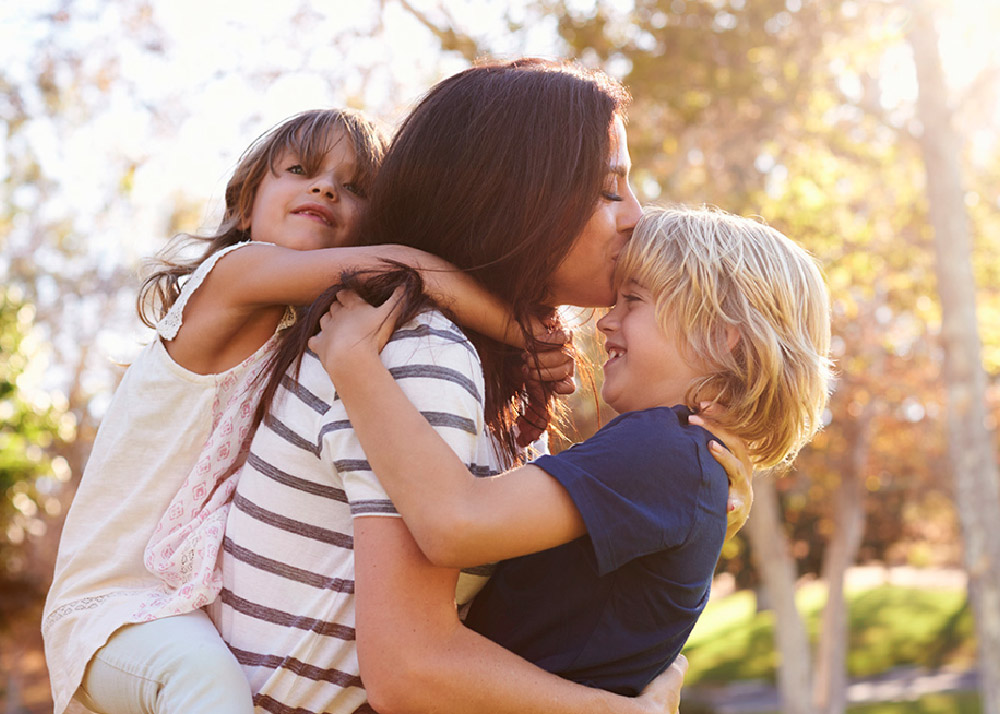

Connection is such a powerful tool used in peaceful parenting practices. It is the offer we extend to our children. It’s the commitment we make to our long term goals, to our way of showing up, and the way we model respect. What if you were to approach parenting this way?
What if you said to yourself I’m gonna work on connection all the time with my kids. In the good times, in the bad times, when my kids are storming, when my kids are calm, when they’re behaving, when they’re not behaving, when we’re in public, when we’re not in public, when they’re doing everything right, and when they’re doing everything wrong.
How do you think your relationship with your children would be different? Do you think you’d get more cooperation?
What I do know is that connection leads to cooperation. Demanding leads to compliance, but at a relational cost. I think one of the most important things to see and understand and implement is connection is our way of being. As humans, social interaction is essential to every aspect of our health. Research shows that having a strong network of support or strong community bond fosters both emotional and physical health and is an important component of life. As parents, we can’t use connection as a privilege or reward that we take away from our kids when they misbehave and then expect our kids to cooperate. It doesn’t work like that. Connection is the starting point. The cooperation, the relationship, the respect, it all emanates from the connection as the tool, not the reward. We can’t use it as some sort of privilege or prize that we take away from our kids when they misbehave. That’s not real connection.
I want to encourage you over the next few days to observe yourself and your parenting. Really ask yourself, am I using connection as a reward to get what I want from my kids, or do I offer connection all the time? I want you to be able to connect with your kids all the time. Our kids deserve it and it’s their right. It makes for better human beings in the long run.
Connection emanates from you, the parent, with a fully developed brain staying regulated. So that’s number one, step one is staying regulated when your child is storming. I want to encourage you, to celebrate every time you fight the urge to take things personally. Instead you stay in your higher brain. You can’t expect this to happen each and every time, but each time it does, please celebrate it so your brain gets a chemical hit and wants more. Regulation breeds connection, and connection breeds cooperation.
Connection is not always about how you would choose to connect. It’s about making the other person feel seen, heard, and valued. I can tell you for my teenager, he loves to connect by arguing, debating and stirring things up. It makes him feel seen, heard and valued. He loves to connect through debating various topics. Not my idea of connecting, but I had to accept this is the way HE feels connection. I don’t feel it, but he feels it. I have learned to participate and understand we are connecting during these discussions. Connection is where the other person feels seen, heard and valued. Sometimes it happens where you both feel it and other times it’s one sided.
For many of us parents, I know this certainly used to be my case. Partially, it’s because of how I was raised, but many of us parents want to talk about issues or concerns we have all the time with our kids. The reality is that our kids can only take it in small chunks. It really doesn’t help our kids feel connected and honestly, no one wants to hear a never ending conversation about where they’re struggling all the time. Nobody wants their mistakes and flaws pointed out and the reminder for improvement to be constantly reviewed, and gone over, over, and over again. In case you didn’t know this, for most children, none of that feels like connection. None of that feels like you see me, you hear me, and you value me. Connection needs to come first. We need to be connected before we begin correcting.
I really believe the hard part about connecting with our kids is we have so many hopes and dreams for them. We want them to do well. We want them to not make the mistakes we made. We want them to get it right. We want them to learn. We want to prevent them from hurting and making mistakes and bumping their knees and getting it wrong. The truth is, they’re different people from us. Their journeys are separate from ours. Additionally, they feel connection way differently than we do. They’re their own person. They’re at a different developmental age than us. Their brains are wired differently. The goal is to connect with our child in a way that makes them feel seen, heard, and valued.
The connection doesn’t always have to feel mutual at the same moment or in the same way. Relationships thrive when connection is given and received over time, over the span of many different experiences. When each party in the relationship gets their opportunity to feel seen, heard, and valued throughout the whole span of the relationship. Not necessarily in every moment or every circumstance. Both people in a relationship do not need to feel connected doing the exact same thing. I like to remember that our children are their own souls. They’ve come to earth to have their own experiences in life. We are given a short time to guide them on their journey. But the truth is, it’s their journey. Connection is the key to preparing them for the best way forward in that journey. Connection for a small child might look like you mom, dad, parent guardian or grandparent, watching me struggle to put my shoes on, but you don’t rush to help me. You don’t leave the room to go do something else either, you just stay with me. The connection may simply be in the watching, even while they struggle or storm.
Committing to staying there and seeing it through, watching them, quietly supporting them while they struggle to figure things out for themselves. So again, I encourage you, I ask you, I assign you, I want you to observe yourself. Are you using connection as a reward when you get what you want from your kids? Or do you offer connection all the time? Are you offering connection with the intent of changing your kids and changing their reactions to their own thoughts and feelings? Or are you connecting with them in order to help them feel seen, heard, and valued even when the behavior is good or bad? When they’re storming or compliant, when they’re cooperating or not cooperating, when they’re having a good day or a bad day?
I encourage you, please do not use connection as a means to an end. Use connection as the tool to build your relationship with your children and help them feel seen, heard, and valued by you. You can do this. I know you’ve got this. I’m gonna hold space and believe that you can evaluate this and make the necessary shifts, so you’re using connection all the time with your kids. So that no matter what’s going on, they feel seen, heard, and valued. You can do this. I know you can.
Many of us know that we want to parent our children differently than the way we were parented, yet we continue the cycle of yelling, punishments & threats.
Change is possible when you learn new ways of processing emotions and communicating effectively.

“This tool helped me feel more connected with my children, we work together as a team. My feelings of overwhelm are diminishing.” – Caitlin (mom of 4)